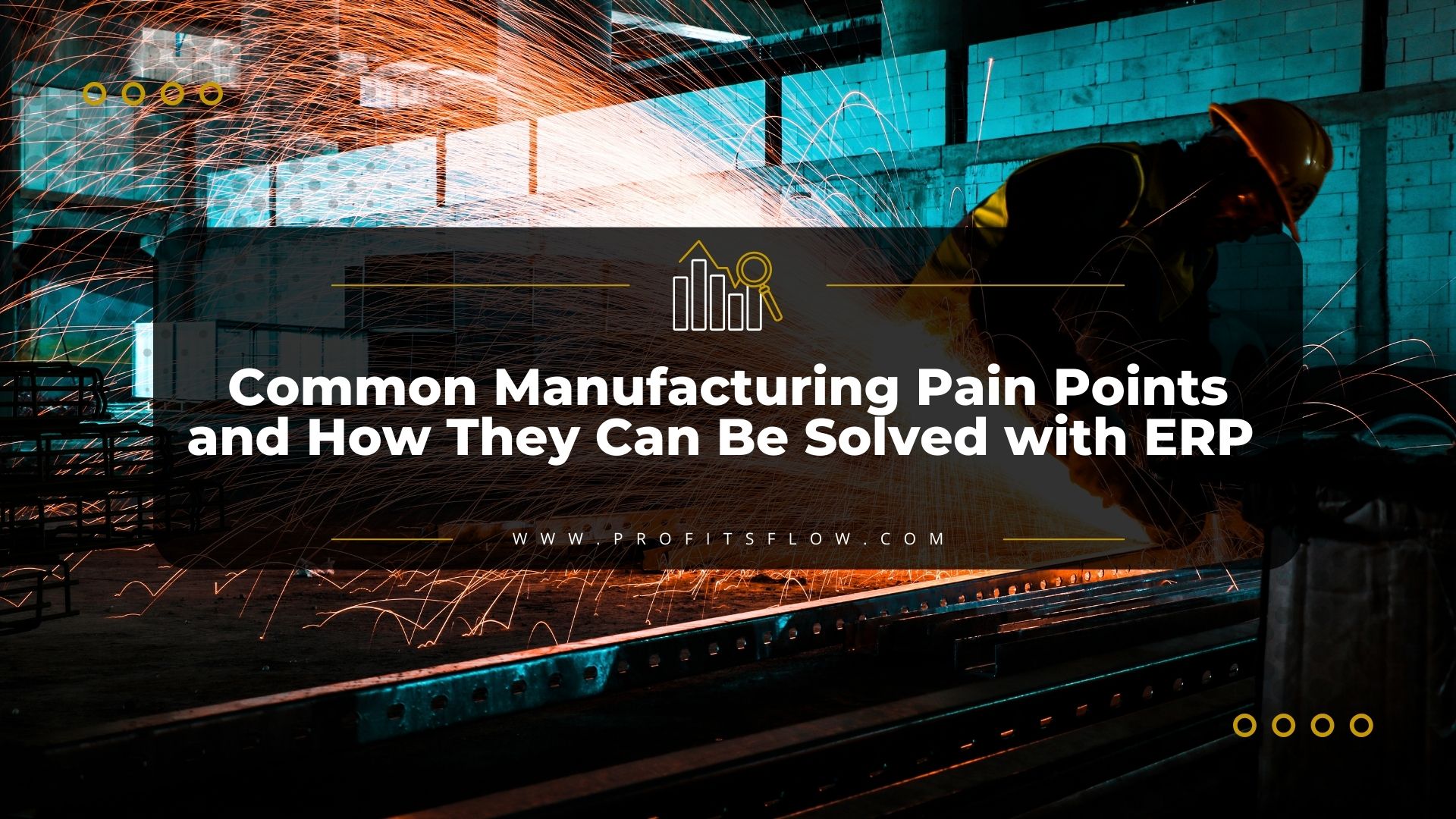Manufacturing businesses today operate in a fast-paced, highly competitive environment. Between fluctuating supply chains, rising customer expectations, and the push for leaner operations, many manufacturers face a range of persistent pain points that affect efficiency, profitability, and growth. The ERP Solution
The good news? Many of these challenges can be significantly reduced—or even eliminated—by implementing a robust Enterprise Resource Planning (ERP) system that is tailored to manufacturing needs.
In this post, we’ll explore the most common manufacturing pain points and explain how ERP systems can solve them.
-
Lack of Real-Time Visibility
The Problem:
Many manufacturers rely on disconnected spreadsheets, outdated systems, or manual processes that limit real-time visibility across operations. This makes it difficult to track inventory, monitor production status, or respond quickly to disruptions.
The ERP Solution:
Modern ERP systems provide real-time dashboards, live inventory tracking, and unified data from procurement to shipping. Decision-makers can instantly see where materials are, what’s in production, and what needs urgent attention.
-
Inefficient Inventory Management
The Problem:
Overstocking, stockouts, and inaccurate counts can cripple manufacturing operations. Poor inventory control leads to increased carrying costs, production delays, and unhappy customers.
The ERP Solution:
With ERP, manufacturers gain automated inventory tracking, demand forecasting, and reorder alerts. Materials and components are always where they need to be, reducing waste and increasing responsiveness.
-
Disconnected Systems Across Departments
The Problem:
Finance, procurement, production, and sales often operate in silos, using different tools that don’t communicate. This leads to data duplication, inconsistencies, and delays in decision-making.
The ERP Solution:
An ERP system integrates all departments into a centralised platform. Everyone—from the shop floor to the back office—works from the same source of truth, improving communication, consistency, and coordination.
-
Production Scheduling Challenges
The Problem:
Manual scheduling and lack of real-time updates result in bottlenecks, unbalanced workloads, and missed deadlines.
The ERP Solution:
ERP software enables automated production planning and capacity scheduling. Planners can instantly adjust schedules based on demand changes, machine availability, or material delays—keeping operations agile and efficient.
-
Quality Control Issues
The Problem:
Without proper oversight, defects can slip through the cracks, leading to costly recalls, waste, and damaged reputation.
The ERP Solution:
ERP systems help enforce quality control checks throughout the production cycle, with built-in workflows for inspections, compliance tracking, and non-conformance reports.
-
Compliance and Traceability Gaps
The Problem:
Regulatory compliance (e.g., ISO, FDA, OSHA) and product traceability are critical in manufacturing, but hard to maintain manually.
The ERP Solution:
ERP automates compliance documentation, batch and lot tracking, and audit trails. It simplifies reporting and ensures that manufacturers can trace every product back through its lifecycle—key for regulated industries like food, pharma, and aerospace.
-
Difficulty Scaling Operations
The Problem:
As businesses grow, legacy systems often can’t keep up with increased complexity, new product lines, or multi-site operations.
The ERP Solution:
ERP systems are scalable and flexible, supporting growth without added chaos. Manufacturers can standardise processes across plants, add users or modules, and maintain control as they expand.
The manufacturing industry is complex, but the right ERP system turns that complexity into a competitive advantage.
By solving critical pain points like poor visibility, inventory inefficiencies, disconnected teams, and compliance challenges, ERP empowers manufacturers to be more agile, accurate, and efficient.
If your manufacturing business is feeling the strain of operational hurdles, it might be time to explore how ERP can transform your processes from the ground up. You can book a call with one of our ERP experts today and get an informed decision on whether it is the right time for you to implement ERP at your business. Free ERP Consultation
